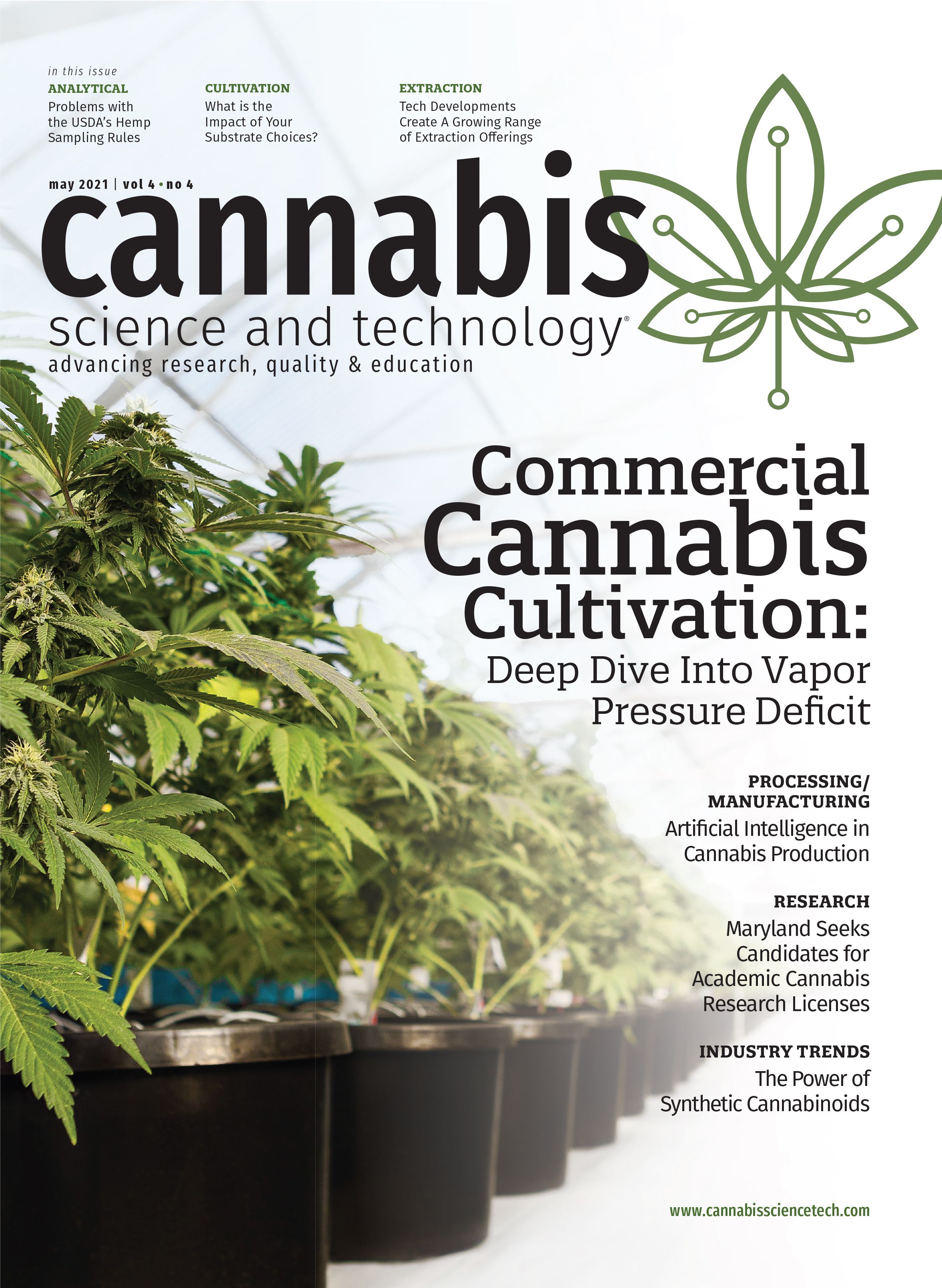Calling All Maryland Researchers: MMCC Seeks Candidates to Apply for Academic Cannabis Research Licenses
Rebecca Jackson discusses a new program at the Maryland Medical Cannabis Commission (MMCC) and what they hope to achieve with it.
The Maryland Medical Cannabis Commission (MMCC) recently began accepting applications for academic cannabis research licenses. For this installment of “Cannabis Crossroads,” I spoke with Rebecca Jackson who serves as an education and research analyst for the MMCC to discuss this new program and what the MMCC hopes to achieve with it.
Rebecca, can you please tell us more about the MMCC’s academic research program and why it was created?
Cannabis policy continues to advance at a rapid pace, which has opened the door to discussions about funded medical cannabis research. Researchers want to evaluate the wide variety of cannabis products sold in states where cannabis is legal, but federal law prohibits them from doing so, since cannabis is still illegal at the federal level. This federal illegality hinders cannabis research, leaving medical providers and patients in the dark about the benefits and risks of cannabis products. The Maryland Medical Cannabis Commission (MMCC) has an important role to play in supporting scientific research and ensuring evidence-based data is used to form policy decisions. The Academic Research program was created with the intent of advancing scientific cannabis research by first removing certain barriers for researchers that make them wary to participate in the first place. House Bill 881 took effect on June 1, 2019, which established legal protections for academic research representatives in Maryland. An academic research representative purchasing medical cannabis in accordance with the bill and Maryland’s medical cannabis program is not subject to arrest, prosecution, civil or administrative penalties, including a civil penalty or disciplinary action by a professional licensing board, nor may they be denied any right or privilege, for the medical use or possession of medical cannabis. Additionally, academic research representatives may not purchase medical cannabis from any entity other than a Maryland licensed dispensary, meaning the medical cannabis being tested and researched in the MMCC Academic Research program is truly reflective of the medical cannabis products that are being produced, dispensed, and consumed by qualifying Marylanders.
This program could also foster new relationships and collaborations between industry and academia. Many local industries that develop technologies related to cannabis have been limited in their ability to research cannabis. Is this program limited to universities?
Academia is such an essential link to the advancement of cannabis science. At this time, the MMCC Academic Research program is limited to academic research institutions. This includes institutions of higher education, a related medical facility, or an affiliated biomedical research firm. An institution of higher education means an institution of post-secondary education lawfully operating in Maryland that generally limits enrollment to graduates of secondary schools, and awards degrees at the associate, baccalaureate, or graduate level. This includes public, independent, private nonprofit, and for-profit institutions of higher education. Academic research applications must include the name of the primary researcher at the academic institution, the expected duration of the research, and the primary objectives of the research.
On the MMCC website it appears that there is a $1000 registration fee as well as a $100 fee per research agent. Is this an annual fee? Are there any limitations or additional details that applicants should be
aware of?
There are no annual fees—the registration is valid for the term indicated and approved on the registration form. Registrants may apply for an extension of the registration beginning 90 days before the expiration of the registration. The registration remains valid unless there is a change in the research project, or the academic research institution withdraws the registration. Any prospective academic research representative may not be registered if they have ever been convicted of a felony drug offense. The MMCC, after review of the criminal history record information, may disqualify from registration any prospective academic research representative who is convicted of or pleads nolo contendere to a crime involving moral turpitude, whether or not any appeal or other proceeding is pending to have the conviction or plea set aside.
Where can Cannabis Science and Technology readers and potential applicants learn more about this new program? Who can they contact with questions?
Those interested in cannabis-related research are encouraged to visit the MMCC website (1) for more information on the Academic Research program. Information and applications can be completed for Academic Research Institution and Research Agent registration, renewal for subsequent or modified research project, and Research Agent identification card replacement. If you have any questions, please do not hesitate to contact Rebecca Jackson, Office of Policy and Government Affairs at rebeccaw.jackson@maryland.gov.
Is there anything else that you would like to share about this program?
In the cannabis space, the lack of federal approval and oversight means that states have cannabis policies and products that vary considerably. In the absence of evidence-based data and clinical trials, most are left to rely on correlational data and testimonials to form decisions about medical cannabis consumption. Research is the only way to bring a clearer vision to the scientific world of cannabis and how it interacts with the human body. The MMCC is committed to encouraging the development of research programs and are always willing to provide support for researchers interested in conducting cannabis research. I am very excited to see what the coming years bring, and how cannabis policies can and will exponentially grow (pun intended), once reliable research can be performed in the United States. The Academic Research program is another way the Maryland Medical Cannabis Commission is furthering the possibilities of cannabis science and ensuring the overall goal—that medical cannabis is available to qualifying patients in a safe and effective manner.
In closing, I’d like to thank Rebecca and the MMCC for participating in this column and for their continued support of medical cannabis education and science. It has been a pleasure working with the MMCC on my Cannabis Science Conference events and I’m thrilled to announce that we’ll be bringing the conference back to the Baltimore Convention Center September 13–15, 2021. Hopefully Rebecca will be able to share some exciting updates about this program at the show. Visit www.CannabisScienceConference.com to learn more.
Reference
About the Columnist

Josh Crossney is the columnist and editor of “Cannabis Crossroads”
and a contributing editor to Cannabis Science and Technology magazine. Crossney is also the president and CEO of Cannabis Science Conference. Direct correspondence to: Josh@JoshCrossney.com
About the Interviewee

Rebecca Jackson works in the Office of Policy and Government affairs at the Maryland Medical Cannabis Commission where she serves as the Education and Research Analyst.
How to Cite this Article
J. Crossney, Cannabis Science and Technology 4(4), 27-28 (2021).

Best of the Week: June 13 – June 19, 2025
June 20th 2025Here, we bring you our top five recent articles covering medical cannabis in Hawaii, a new dispensary in Connecticut, pesticide testing in California, a cease-and-desist letter to a dispensary on Long Island, and a global survey on cannabis for endometriosis.